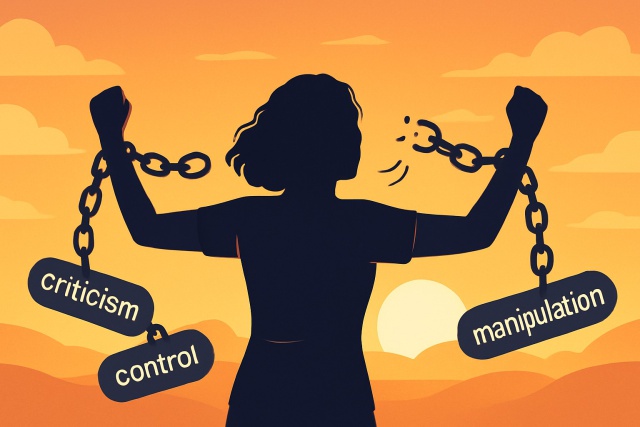
Different Types of Relationships That Shape Our Lives
Discover the diverse types of relationships that influence our lives, from family and friendships to...
Trust is the bedrock of any solid relationship and gives us a comforting sense of safety and reliability. When trust takes a hit, it can rattle those connections and leave behind hurt, doubt and insecurity that’s tough to shake, making you wonder how do you rebuild trust in a relationship.
The very first important step to mending broken trust is noticing when it’s taken a hit. You’ll often catch signs like lingering tension in the air or people becoming a bit guarded. Partners may start to dodge each other. These are little alarms flashing that trust isn’t quite what it used to be.
Trust usually takes a hit for a handful of reasons, often tied to those gut-wrenching moments of betrayal or feeling ignored. When partners can spot these familiar red flags, they’re better equipped to figure out what went sideways and roll up their sleeves to tackle the real issues.
Rebuilding trust begins with openly admitting there’s a problem at hand. Both partners have to take an honest look at their feelings and the situation, without downplaying or sweeping the pain under the rug.
Ignoring trust issues or dodging responsibility usually just drags out the pain and keeps the relationship stuck in a frustrating loop.
Building a safe space where both partners genuinely feel heard is absolutely key. This means tuning in closely without jumping in too quickly, asking thoughtful questions to get a clearer picture and sharing feelings openly with kind and respectful words.
Honesty is about owning up to your mistakes with no excuses allowed. A genuine apology goes beyond just words because it acknowledges the pain caused and conveys heartfelt empathy.
Taking responsibility for what we do is the key first step toward healing. It’s like laying down the foundation that lets forgiveness sneak in and trust start to rebuild, brick by brick.
Boundaries help build a much-needed sense of safety and structure during the tricky process of rebuilding. When partners can sit down and agree on which behaviors are okay and which ones cross the line, it makes everyone feel respected and frankly a bit more secure.
Trust isn’t built overnight. It grows bit by bit through consistent acts of reliability and honesty. It definitely calls for patience because emotional wounds don’t just vanish—they need their time to mend, and those old habits often sneak back before any real and lasting change sets in.

Restoring trust usually brings hurdles that can throw a wrench in the works and slow things down. Nagging feelings of doubt, temptation to fall back into old patterns and emotional roadblocks often stand in the way.
Sometimes repairing broken trust is a tall order that partners simply cannot tackle on their own. That’s where couples counseling or therapy steps in to offer a neutral space to explore how do you rebuild trust in a relationship, untangle messy emotions, boost communication and map out practical next steps. It’s usually smart to reach out for help when mistrust hangs around despite your best efforts, when conflicts start escalating or sharing feelings feels like an uphill battle.
There isn’t a set timeline because it depends on how deep the breach was and how committed both partners are to making things right. Usually rebuilding trust isn’t quick. It often takes months or even years rather than just a few weeks. It requires consistent effort and a lot of patience since trust grows slowly through steady reliable actions over time.
The goal isn’t to rewind to the old 'normal' but to build a new stronger foundation together. While the relationship can heal and become healthy again, it often looks different than before. This fresh chapter tends to be more resilient with clearer communication, stronger boundaries, and a deeper understanding between partners. If you ask me, that’s something worth striving for.
A sincere apology means owning up to the mistake without making excuses. It acknowledges the hurt caused, shows genuine remorse, and clearly explains what will change moving forward. The focus is on recognizing how your actions impacted your partner not just what you meant to do. This shows true empathy for their feelings.
Healing takes teamwork. If one partner stays distant it’s important to keep communication open and discuss their needs and fears. They might just need more time or professional help to process their feelings. Trying to rush or pressure them often doesn’t help. Patience and steady dependable behavior tend to win the day here.
Calling in a professional is a smart move if mistrust stays despite genuine efforts, if conversations often turn into arguments, or if you feel stuck without progress. Therapists offer a neutral space to sort through complex emotions and help you develop strategies tailored specifically to your situation.

Discover the diverse types of relationships that influence our lives, from family and friendships to...

Insecurities impact relationships quietly but deeply. Learn about common types, how they develop, an...

Recognize common toxic relationship signs early to protect your emotional well-being and foster heal...

Narcissism comes in various forms, from overt arrogance to hidden insecurity. This guide breaks down...